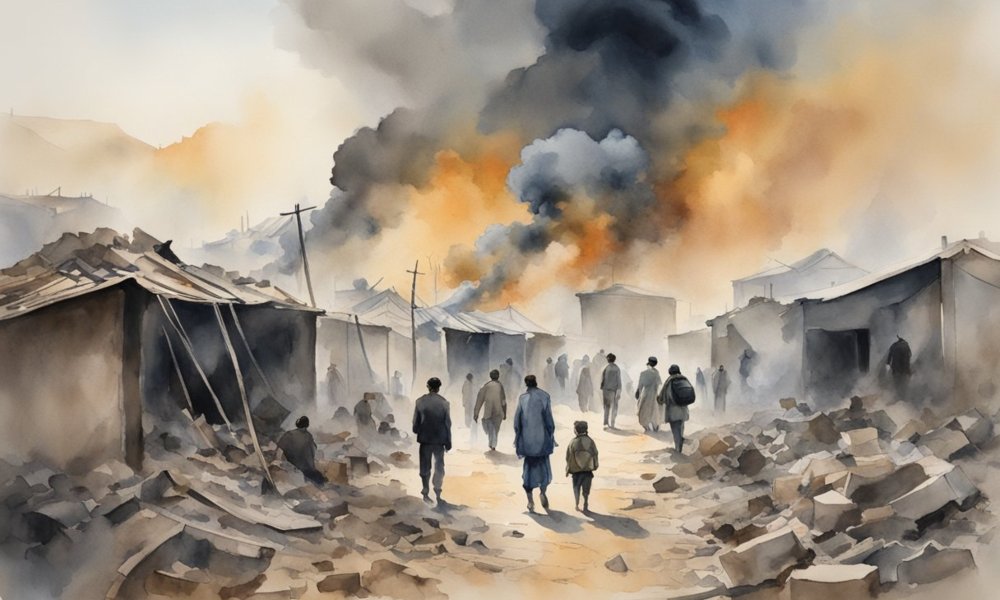Israel’s military launched an airstrike near Rafah, a city in the Gaza Strip. The attack came after rockets were fired from Gaza towards Tel Aviv, a prominent Israeli city. Over 30 people died when the airstrike hit refugee tents in a camp close to Rafah. Does this increasing violence put peace negotiations at risk?
Here are the key points:
- Israel conducted an airstrike near the city of Rafah in the Gaza Strip.
- This was in response to rockets fired from Gaza that hit the Israeli city of Tel Aviv.
- The airstrike killed over 30 people in a refugee camp near Rafah.
- There are reports of graphic scenes and many civilian casualties from the airstrike.
- This escalating violence could impact ceasefire negotiations between Israel and Hamas.
What Happened in the Airstrike
According to reports, the Israeli airstrike targeted a compound used by Hamas, the militant group that controls Gaza. However, the missiles appear to have struck an area with many tents housing refugees.
Eye-witness accounts describe horrific scenes of dead children and terrible injuries from the blast. One video shows a man holding up the body of a decapitated child with missing limbs.
The Hamas-run health ministry in Gaza says the explosion in the refugee camp killed at least 35 people. Israel has not commented on the high death toll.
Retaliation for Rockets on Tel Aviv?
The Israeli airstrike came after Hamas militants fired eight rockets from Rafah toward Tel Aviv the previous day. This was the first time in years that Tel Aviv’s air raid sirens had gone off due to rocket attacks.
However, some analysts say the airstrike may not have been directly related to the Tel Aviv rockets. They note Israel has conducted similar strikes in designated “safe zones” for refugees throughout the 8-month conflict.
Israel may claim the airstrike targeted a Hamas leader using the refugee camp to hide from attacks. In the past, Hamas commanders have stayed in underground tunnels but occasionally emerged among civilians.
Impact on Peace Talks
The escalating violence could hurt efforts to negotiate a ceasefire between Israel and Hamas. Both sides had agreed to resume talks in Cairo this week after previous negotiations stalled in May.
However, Israel’s prime minister has stated he will not agree to end military operations against Hamas as part of a deal. Hamas insists that must be a condition for any ceasefire.
Some question how Israel’s allies will react if the fighting continues and more civilian casualties are reported. Several nations are considering giving official recognition to a Palestinian state in response to the conflict.
An American analyst said it remains to be seen how much U.S. support Israel will receive going forward, especially if a different president takes office after the 2024 election.
What’s Next?
As the death toll mounts and peace talks remain uncertain, the path forward is unclear. Israel seems determined to keep up military pressure on Hamas. However, the militant group still holds hostages and has not been defeated.
Can this cycle of violence be stopped? Will more civilian lives be lost before a resolution is reached? Only time will tell how this long and tragic conflict finally ends.
















